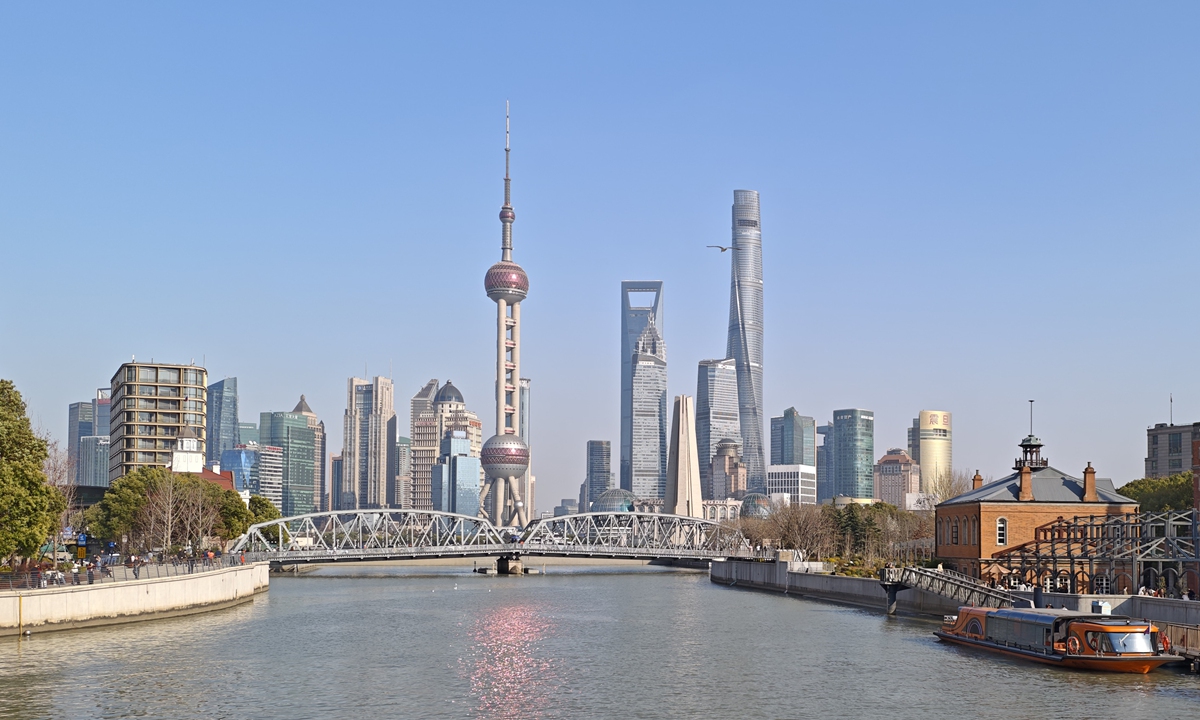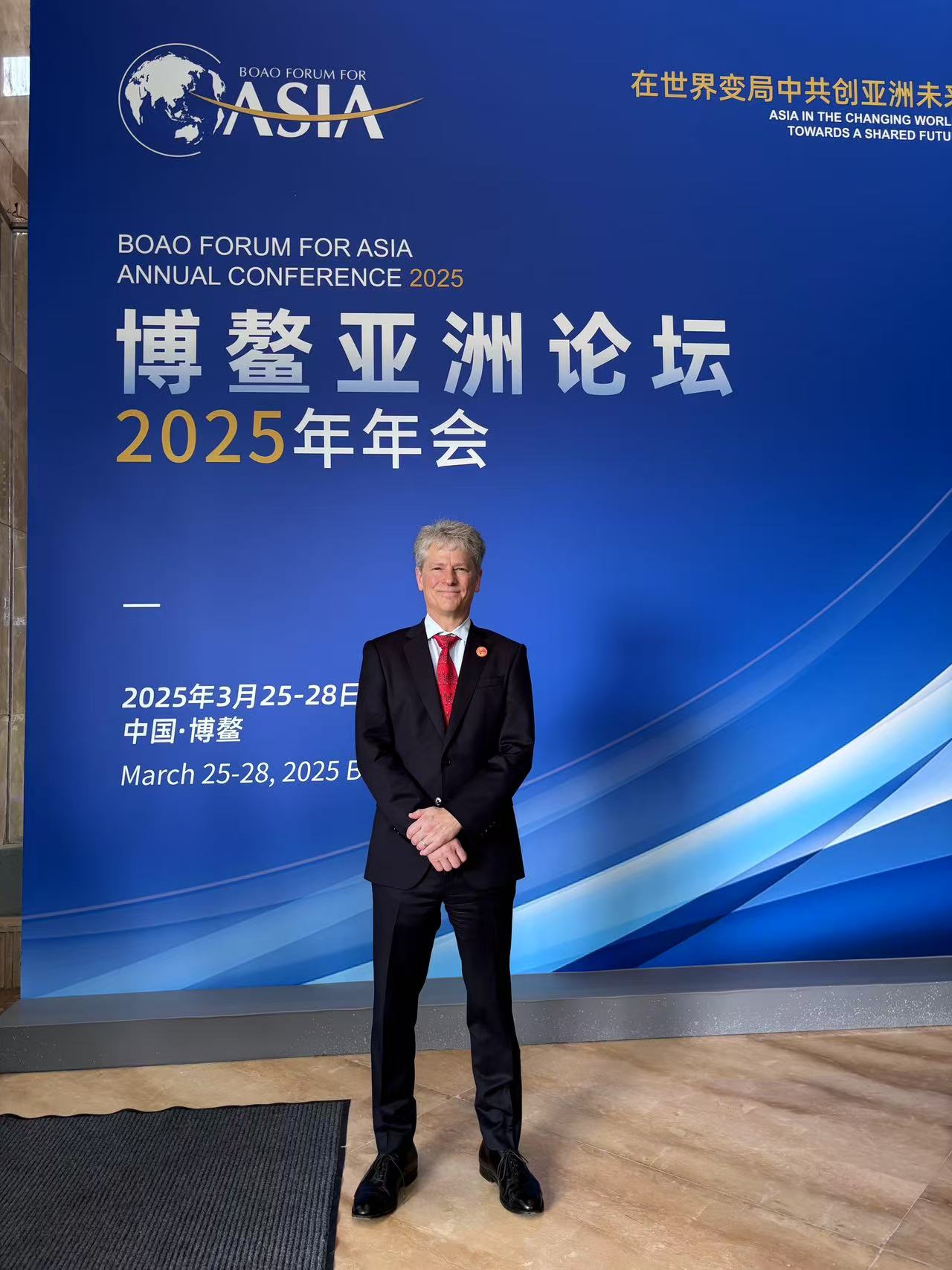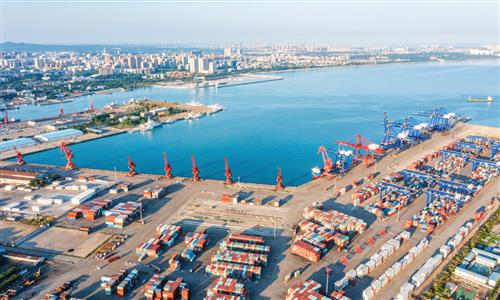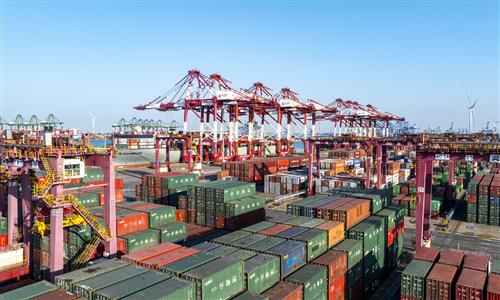Tariffs drag down global growth; China’s efforts to boost consumption ‘important’ step: IMF official


A view of Shanghai’s Lujiazui area on March 21, 2025 Photo: VCG
Editor's Note:
In April, the IMF significantly lowered growth forecasts for regional and global economies, citing a "major negative shock" from new tariffs. To further understand the impact of trade tensions on global and regional growth and how should regional economies respond to the tariff shock, Global Times reporter Liu Yang (GT) interviewed Marshall Mills (Mills), the IMF's senior resident representative in China. In the interview, Mills also talked about China's various measures to boost the economy, calling relevant moves as "important" and "positive" steps. The interview has been edited for length and clarity.
GT: In the latest World Economic Outlook, the IMF cut forecasts for both global and Asia's economic growth. How should we view this decision by the IMF? What are the main reasons behind the move?
Mills: Yes, it is correct that IMF's forecasts for both global growth and growth in Asia have been revised down. The two main drivers of this revision are new trade tariffs and overall trade policy uncertainty.
If sustained, these factors will slow global growth significantly. This uncertainty makes economic forecasts difficult. Reflecting this complexity, the IMF has presented what we are calling reference forecasts, which incorporate policy announcements up to April 4. Under these forecasts, global growth will reach 2.8 percent this year and 3 percent next year, a cumulative downgrade of about 0.8 percentage points over the two years, relative to our forecasts in January 2025. In this forecast, growth in global trade will fall by more than half - to 1.7 percent this year from 3.8 percent last year. The IMF has also offered a range of forecasts under different policy assumptions.
For the US' trading partners, tariffs act mostly as a negative shock to external demand in the near term. This is why we have lowered our reference forecast for growth in Asia to 3.9 percent this year, down from 4.6 percent last year. The downgrade of 0.5 percentage point is our sharpest since the pandemic, reflecting Asia's dependence on global trade.

Marshall Mills, senior resident representative of IMF in China Photo: Courtesy of IMF
GT: In your view, how Asia can strengthen regional economic cooperation and enhance resilience amid growing global trade tensions?
Mills: Asia's trade openness, including integration into global value chains, has delivered unprecedented prosperity. But the world is changing - trade is subject to barriers, uncertainty remains elevated, and government budgets more constrained. However, this trade openness has rendered Asian economies more dependent on external demand and more vulnerable to fluctuations in global demand and rising protectionism. Despite the considerable headwinds, Asia is still expected to grow faster - at 3.9 percent - than the global economy as a whole.
The likely headwinds from heightened trade tensions and tariffs make it even more important for Asian countries to foster more balanced growth and resilience. The two key components of growth strategies in Asia would be:
The first is stronger and sustained domestic demand - especially private consumption - in some countries, including China. This will require structural reforms, for example, expanded social safety nets.
The second is greater diversification of export markets and regional integration, which could help insulate economies from global shocks. For example, we see significant scope for more intra-regional trade in ASEAN.
Beyond these policies, structural reforms will be essential for long-term resilience and robust growth. Productivity growth in Asia has slowed over the past decade, particularly in emerging economies. Adopting artificial intelligence and other advanced technologies could help reverse this if supported by investments in skills, infrastructure, and regulatory frameworks.
As the Director of the IMF's Asia and Pacific Department stressed in a recent blog, Asia is at a "strategic crossroads." Continuing its historic success will require decisive action by policymakers.
GT: What's your view on China's economic development this year? What do you think of China's policy measures so far to boost growth?
Mills: We have lowered our reference forecast for growth in China for this year, as we did for the Asia region.
Also, let me stress that these forecasts do not include any new trade announcements after April 4. Given the tariff shocks and high uncertainty, some additional fiscal expansion in China is warranted.
China's plans to boost domestic demand, and especially private consumption, as announced during the [two sessions] in March, are an important step in the right direction. We strongly welcome this. At the same time, more needs to be done.
Another priority emphasized by IMF Managing Director Georgieva is the need for global economic cooperation in a multipolar world. She called on all the largest players to secure a settlement of trade tensions that preserves openness and delivers a more level playing field.
GT: China has taken a series of policy initiatives to optimize the business environment in order to stabilize foreign investment and foreign trade. How do you evaluate these efforts?
Mills: We welcome the initiatives to enhance the business environment. Promoting private sector-led growth is the most effective and sustainable avenue to high quality development. We believe that this advice applies equally to both domestic and foreign private sector companies. In addition, the passage of the private sector promotion law, which we understand will take effect on May 20, is a positive step forward.
In conclusion, let me stress that the IMF has a rich dialogue on economic policies with the Chinese authorities. We strive to help them develop policies that promote sustained, high-quality development, which will continue the remarkable improvement in living standards for the Chinese people. We believe that this dialogue will be all the more important in the face of the current challenges facing China and the global economy.



